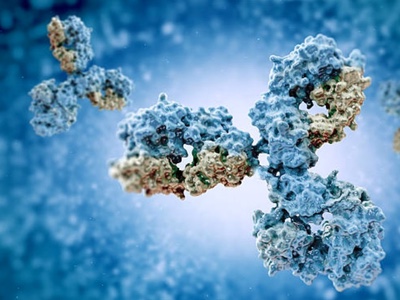For decades, antibodies have played a foundational role in research applications throughout the life sciences.
From deepening our understanding of vital physiological processes to creating the next generation of innovative therapeutics, advances in antibody development and engineering have redefined what’s possible for scientists who rely on these essential components.
The rise of recombinant antibody technology has continued to fuel this progress by offering new levels of customisation while maximising consistency and reproducibility. Antibodies can now be engineered to precise specifications, modified efficiently and produced at large scale without sacrificing quality or reliability.
Expert antibody suppliers play a critical role by helping researchers at every level to leverage the full potential of recombinant antibody technology, offering a wealth of quality off-the-shelf options along with deep customisation possibilities.
From academic scientists conducting basic research to drug developers creating innovative therapeutic candidates, partnering with specialised reagent suppliers can empower them all to be “curators” of the antibodies that make groundbreaking advances possible.
Reproducibility and reliability at every level
The advent of hybridoma technology in the 1970s was a game-changer for scientists working with antibodies; it enabled the large-scale production of highly specific monoclonal antibodies.
However, this method of antibody production comes with significant limitations. Because hybridoma technology relies on B cells generated in mice or rats and requires screening for the resulting monoclonal antibodies, the technique can be relatively time- and resource-intensive.

Additionally, these antibodies have limited clinical applicability because of their murine origin, necessitating humanisation for use in diagnostics or therapeutics. This adds an additional layer of cost and effort for researchers using this approach.
Among the most notable limitations of hybridoma technology is its challenges with reproducibility — a fundamental element of effective science.
Genetic drift is virtually inevitable with time, meaning a once-useful cell line can eventually undergo changes that alter the properties of antibody products or compromise the viability of the cells entirely.
This means that researchers working with the same cell line cannot reliably expect the same results from their antibodies forever, limiting the reproducibility of experimental results.
Advances in genetic engineering technology that enabled the rise of recombinant antibody technology were thus transformative for basic scientists and drug developers alike.
Although the biopharmaceutical space was relatively quick to adopt recombinant antibody technology, research was slower to make the shift, creating a chasm between translational research and drug development efforts.
Academic research forms many of the fundamental building blocks that drive drug development; so, making recombinant antibodies accessible at every level has been a vital step towards harmonising research efforts and ensuring that basic discoveries can translate to biomedical innovation.
Nearly a decade after an impactful Nature commentary called for the widespread adoption of recombinant antibody technology to improve experimental reproducibility, researchers from academia to industry have increasingly turned to expert antibody suppliers to reach this goal.1
Basic researchers can now work with reagent supply partners to create reliable, validated antibodies based on their sequence of interest or even “resurrect” antibodies from previously compromised cell lines.
In addition to a growing range of “off-the-shelf” options, custom antibodies against novel or less-studied proteins are more immediately accessible from recombinant antibody suppliers to support groundbreaking basic research.
By increasing confidence in the specificity, affinity and homogeneity of these vital tools, this shift has strengthened the foundation upon which biopharma innovation is built.
Powering drug discovery
The field of antibody therapeutics has seen exponential growth in the last two decades, with modalities such as antibody-drug conjugates (ADCs) and bispecific antibodies demonstrating massive potential for the treatment of cancer, autoimmune disease and more.2
Accessible recombinant antibody technology has not only helped drug developers to circumvent challenges with the quality and consistency of therapeutic antibody products, it has opened new doors at every stage of drug development, facilitating discovery and accelerating the optimisation of therapeutic candidates.
Early drug discovery and development depends on identifying potential therapeutic candidates and whittling them down to the most promising options based on functionality and other traits.
By partnering with recombinant antibody suppliers, even the smallest biotech start-ups can source highly customised antibodies for drug discovery. The cost- and resource-efficiency of recombinant antibody production also enables the rapid engineering of different antibody reconfigurations during discovery.

Because established reagent suppliers often have proprietary cloning strategies, modifications such as isotype switching can be achieved in a matter of weeks.
Collaborations with suppliers also provide researchers with access to a wealth of expertise in antibody engineering and validation, which may not be available in-house.
Established suppliers can work with partners to engineer recombinant antibodies to precise specifications, enabling functional fine-tuning. Scientists working in drug discovery can more easily explore candidates in novel therapeutic modalities, such as ADCs, multispecific constructs and antibody fragments.
Expert recombinant antibody suppliers can also help researchers to engineer strategies that minimise immunogenicity and increase binding affinity, two principles that are essential to the efficacy of antibody therapeutics. This, in turn, can accelerate the path of promising candidates from discovery to development.
These advantages have also translated to more powerful diagnostic development.
Although recombinant antibody technology has not completely replaced hybridoma production in the diagnostic space, the ability to precisely engineer recombinant antibodies has unlocked new possibilities that will be vital to move the field forward.
Modified antibodies can be developed to enhance their sensitivity, stability or ease of detection in diagnostic applications, improving assay performance.
Additionally, recombinant antibodies can be tailored to interact with specific mutations, isoforms or conformational states of proteins, enhancing diagnostic precision or therapeutic targeting.3
Supporting innovation with a reliable supply of validated antibodies
Beyond the discovery stage, pharmaceutical companies can partner with suppliers to streamline the development of novel antibody therapeutics.
Recombinant antibody providers have played a crucial role in this field by overcoming many of the limitations of traditional antibody production methods, such as poor yield, long production timelines, batch-to-batch variability and risk of contamination, which translates to faster development and greater resource efficiency.
With recombinant antibodies, production is highly controlled, ensuring uniformity throughout batches and reducing the variability that can compromise preclinical and clinical studies.
This consistency is vital to generate reproducible results and maintain the integrity of experimental outcomes throughout the drug development process.
Additionally, partnering with well-equipped suppliers ensures supply chain reliability during the whole drug development timeline. Recombinant antibody providers can support scalable production as development progresses, ensuring a stable and reliable supply for clinical trials and manufacturing pipelines.
The streamlined and efficient production processes of recombinant antibodies can also help drug and diagnostic developers to meet regulatory milestones faster, which is particularly valuable in fast-tracked development programmes for rare diseases or public health emergencies.
Recombinant antibody suppliers often provide detailed documentation for their products, including quality control measures, sequence information and production protocols.
This comprehensive data is crucial for regulatory submissions as it helps to meet stringent requirements for product characterisation, stability and safety. Quick turnaround times for antibody generation and production, as well as thorough characterisation data, can support faster regulatory submissions and approvals.
Bringing everyone into the future
Antibodies have been a ubiquitous and versatile tool in biomedical research for decades, empowering a deeper understanding of complex biological processes and disease aetiology.
Their role in diagnostic and therapeutic development has evolved rapidly, with recombinant antibody technology unlocking new functional possibilities.
By partnering with expert suppliers, researchers from biopharma and academia alike have been able to overcome the limitations of traditional antibody production processes and leverage consistent, validated reagents that support experimental reproducibility across the entire spectrum of basic science to drug development.
In addition, the ability of suppliers to provide precisely engineered, well-characterised and efficiently produced antibodies accelerates drug development timelines to bring groundbreaking therapies to the clinic faster.
Although much of the research and drug development landscape has adopted recombinant antibody technology, partnerships with expert reagent suppliers will continue to be essential to keep up with an evolving field, update traditional processes and maintain a reliable and scalable supply chain.
Novel antibody therapeutics such as ADCs hold transformative potential to treat cancer and other diseases, and cutting-edge diagnostic tools will support more precise disease characterisation and treatment selection.
As biotechnology advances, collaborations with expert suppliers will not only facilitate the development of novel therapeutics and diagnostics but also strengthen the broader landscape of biomedical research, enabling breakthroughs that address pressing global health challenges.
References
- www.nature.com/articles/518027a.
- https://pubmed.ncbi.nlm.nih.gov/20422787/.
- www.nature.com/articles/srep29038.
